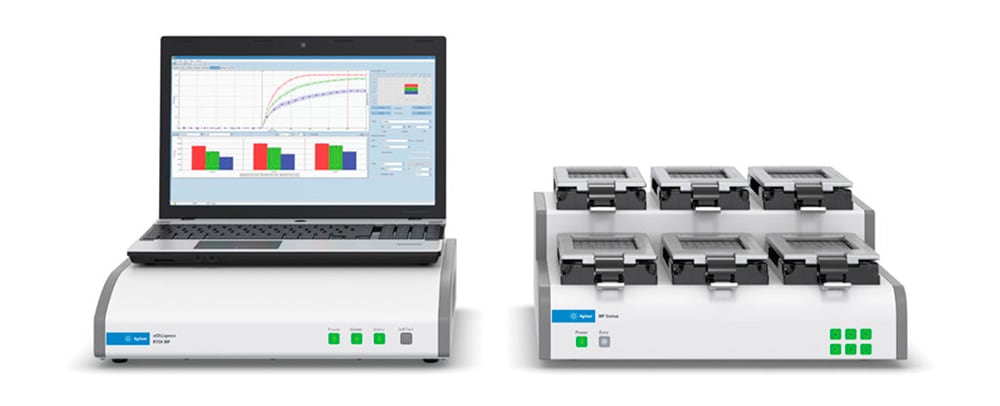
Agilent’s Cell Analysis division has recently awarded an xCELLigence Research Grant to a leading science and technology agency in Australia. The principal scientist of this infectious disease research lab will employ xCELLigence real-time cell analysis (RTCA) technology for research of high-throughput screening of therapeutics against respiratory viruses, including SARS-COV-2.
The grant recipient’s lab has developed an airway epithelial cell model using normal and diseased human bronchial epithelial (HBE) cells and will be using the xCELLigence RTCA SP system’s noninvasive electrical impedance monitoring to continuously examine cell proliferation and viability. The cells will also be stimulated with respiratory viruses such as influenza to determine the ability of the instrument to detect changes associated with a viral infection.

The information provided from these experiments will inform the feasibility of using the xCELLigence system for assessing SARS-CoV-2 infections and testing therapeutics. The hope is to eventually utilize it for high-throughput screening against these viruses and to co-culture populations of cells from different organs to monitor downstream effects of virus infection or drug administration.
The xCELLigence technology allows for rapid, real-time monitoring of viral cytopathic effects and provides an opportunity to fill a critical gap in testing therapeutics against dangerous pathogens—one that is currently unmet by other instruments. The fully automated system also reduces workload and minimizes manual handling of infectious material, demonstrating yet another feature that can benefit infectious disease researchers.
xCELLigence RTCA technology enables comprehensive insight into cell health, adhesion, morphology, proliferation, and cytolysis using live, simultaneous, and real-time biosensor impedance-based measurements. One of the most recent additions to the Agilent cell analysis portfolio is the xCELLigence RTCA eSight, which combines impedance-based monitoring together with live-cell imaging to provide multi-parametric and data-rich information.